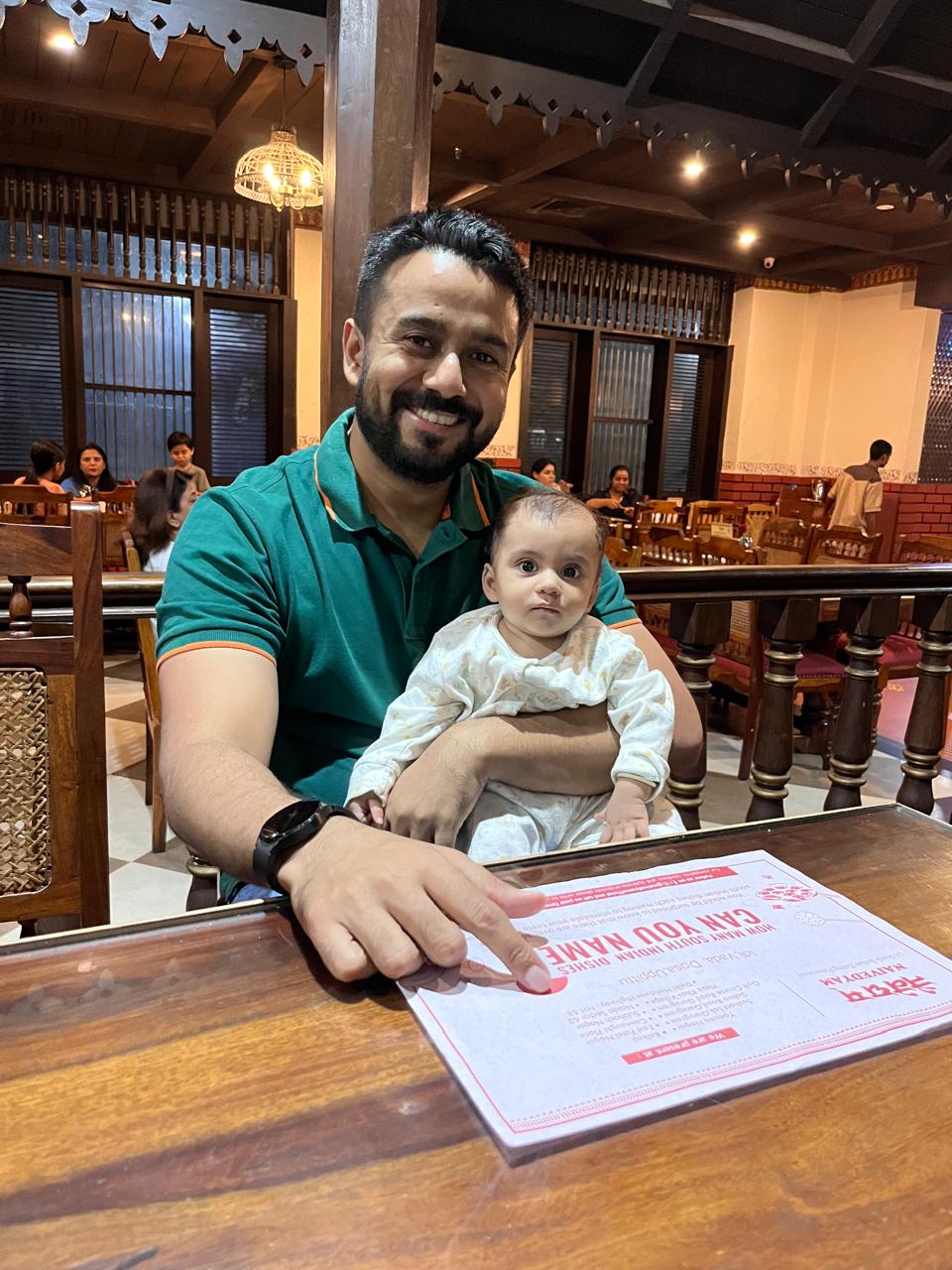Today, I had the pleasure of meeting Gauri, the six-month-old daughter of my childhood friend Aashish Gupta. Aashish, an alumnus of IIT Delhi and a fellow Jaipurite, has embarked on the incredible journey of parenthood. As I observed Gauri's captivating interactions with her surroundings at Naivedyam restaurant, I found myself reflecting on the remarkable world of infants and their rapid development. Gauri's expressive nature and keen interest in her environment, from playing with the paper dining mat to fixating on hanging objects, served as a vivid reminder of the complex and fascinating processes occurring within an infant's developing mind. This encounter inspired me to delve deeper into the subject of infant development and share some insights on this blog.

The first few years of a child's life are crucial for brain development. During this period, infants undergo rapid physical, cognitive, and emotional growth. Their brains are incredibly plastic, forming new neural connections at an astonishing rate of up to 1 million per second. This neuroplasticity allows infants to absorb and process vast amounts of information from their environment, laying the foundation for future learning and development. One of the most striking aspects of infant behavior is their innate curiosity and drive to explore the world around them. As I witnessed with Gauri, even simple objects like a paper dining mat can become a source of fascination and learning. This exploratory behavior is not random but serves a vital purpose in their cognitive development. Through sensory experiences and interactions with objects, infants begin to understand cause and effect relationships, develop their motor skills, and form early concepts about the physical world.
The visual system of infants undergoes significant changes during the first few months of life. Newborns have limited visual acuity, but by around six months – Gauri's current age – their vision has improved dramatically. They can now focus on objects at various distances, track moving objects, and show a preference for faces and complex patterns. This visual development goes hand in hand with their growing ability to reach for and manipulate objects, as Gauri demonstrated with the dining mat. Language acquisition is another fascinating aspect of infant development. While Gauri may not be speaking words yet, she is already laying the groundwork for future language skills. Infants as young as six months can distinguish between the sounds of their native language and those of foreign languages. They are also beginning to understand the rhythm and intonation of speech, which helps them segment the continuous stream of speech into individual words.
The role of parents and caregivers in infant development cannot be overstated. Aashish and his wife, Aditi, like all parents, play a crucial role in shaping Gauri's development through their interactions, responsiveness, and the environment they provide. Secure attachment relationships formed during infancy have long-lasting effects on a child's social and emotional well-being. As infants explore their world, they engage in what developmental psychologists call "serve and return" interactions. When a baby babbles, gestures, or cries, and an adult responds appropriately with eye contact, words, or a hug, neural connections are built and strengthened in the child's brain. These interactions are fundamental to the development of communication and social skills.
Motor development is another area of rapid growth during infancy. While Gauri may not be crawling or walking yet, she is likely showing signs of increased control over her movements. The development of fine motor skills, such as grasping small objects, and gross motor skills, like rolling over or sitting up, follows a predictable sequence but can vary in timing from one child to another. Nutrition plays a vital role in supporting the rapid growth and development occurring during infancy. Breast milk or formula provides the necessary nutrients for brain development, including essential fatty acids, proteins, and vitamins. As infants transition to solid foods around six months, their diet continues to play a crucial role in supporting cognitive and physical development.
Sleep is another critical component of infant development. During sleep, the brain processes and consolidates information gathered during waking hours. Infants spend a large portion of their day sleeping, with patterns gradually shifting towards longer nighttime sleep as they grow older. Establishing healthy sleep habits early on can have long-lasting benefits for a child's cognitive function and overall well-being. The development of self-awareness is a fascinating process that begins in infancy. While newborns don't have a sense of self separate from others, this awareness gradually emerges over the first two years of life. Around 6 months, infants begin to show signs of self-recognition, such as being interested in their reflection in a mirror. This developing sense of self is crucial for future social and emotional development.
As infants like Gauri grow and develop, they also begin to show individual temperaments and personalities. Some may be more outgoing and expressive, while others might be more reserved. These early personality traits, while not fixed, can influence how a child interacts with their environment and the people around them. The importance of play in infant development cannot be overstated. Through play, infants learn about their world, develop problem-solving skills, and enhance their creativity. Even simple games like peek-a-boo help infants understand concepts like object permanence and cause-and-effect relationships. As they grow, their play becomes more complex, involving imagination and symbolic thinking.
To Gauri, Aashish, and Aditi: may your journey through parenthood be filled with wonder, learning, and joy. Here's to the incredible adventure that lies ahead, and to the bright future that awaits little Gauri. May she continue to explore, learn, and grow, surrounded by love and support. The world is full of possibilities, and with each passing day, Gauri is building the foundation to embrace them all.
